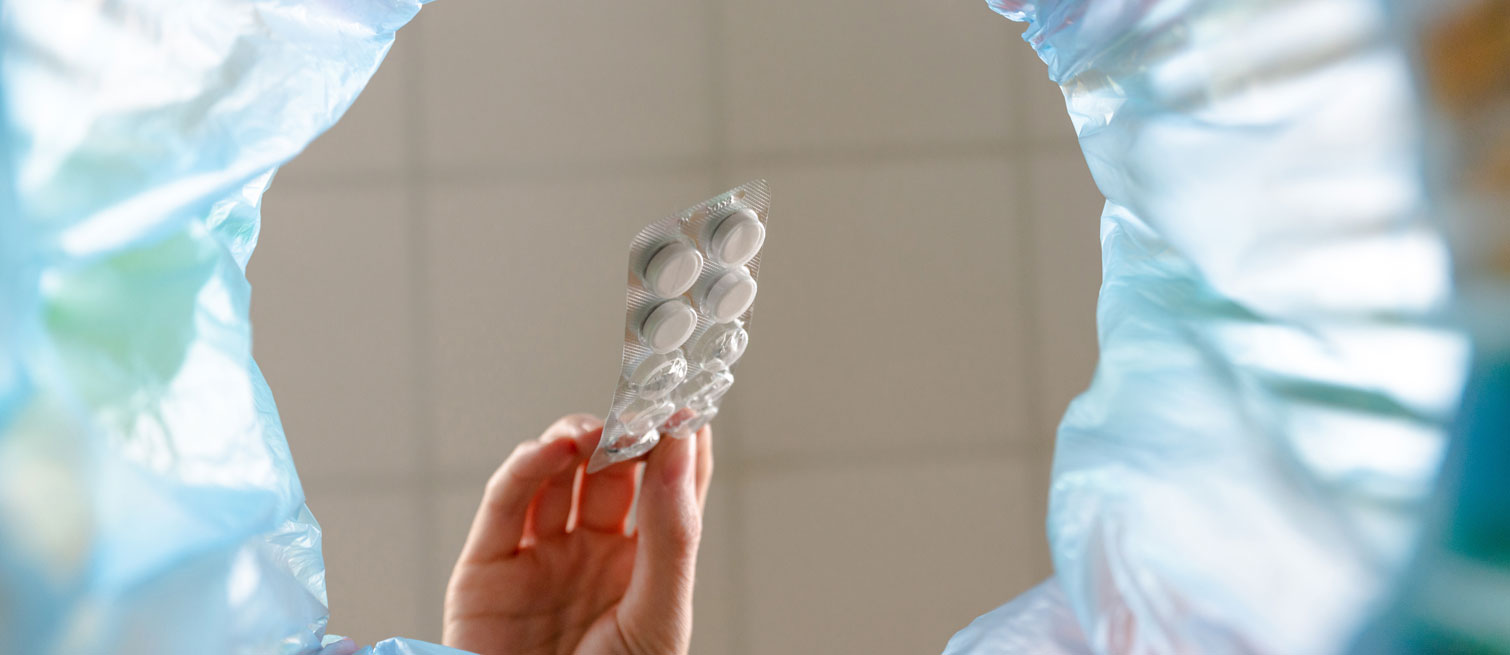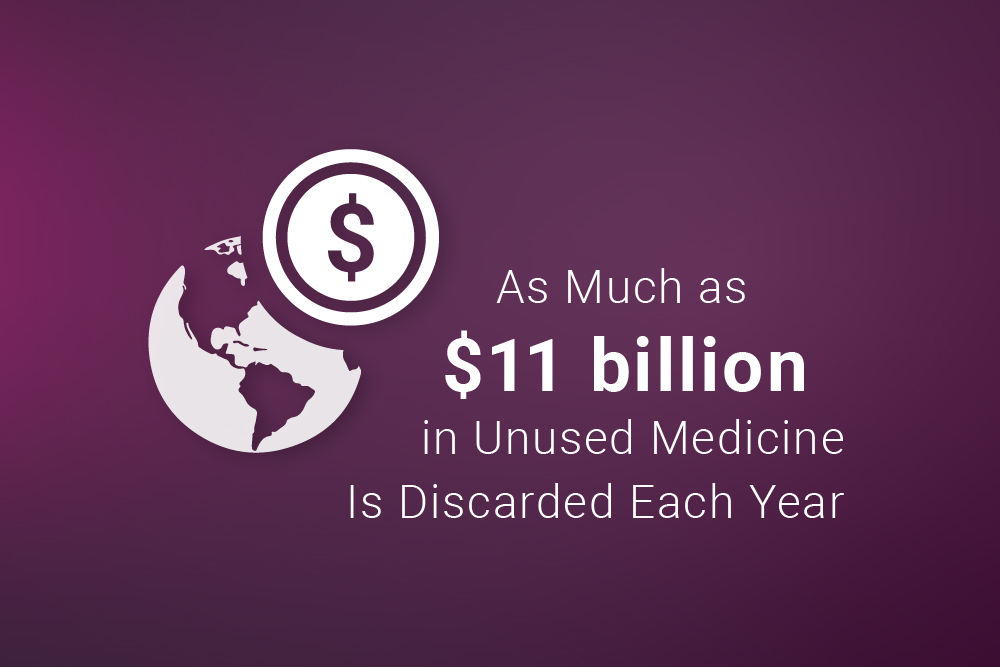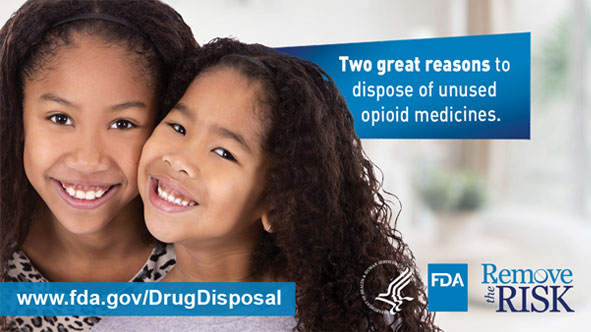
Dispose Safely: Help prevent poisoning, misuse, and overdose.
 Drug Disposal
Drug Disposal
Disposing of drugs safely is one way to prevent misuse. Search the Drug Disposal Locator Tool for permanent drug disposal boxes in your area.
Drug Disposal
Old prescriptions left unsecured in the home can often be an easy source for someone thinking about unsafely using prescription medications and can be dangerous for pets or children who may accidentally ingest them. They can also be confusing for elderly people who may have multiple prescriptions.
35K
Each year there are approximately 35,000 emergency department visits from unintentional overdose in children under 5 years old.
90%
Over 90% of emergency department visits for unintentional medication overdose for children under 5 years old involve children getting into medicine without a caregiver’s oversight.
450K
There are over 450,000 calls to poison centers each year about children under 6 years old accidentally ingesting medication.
Protect you and your loved ones by safely disposing of medications.
How to Safely Dispose of Medication
Locate a Drug Disposal Box
If you have expired or unneeded medication at home, your community may have permanent drug disposal boxes at the following locations:
- Pharmacies, including independent stores and chains
- Police departments
- Fire stations
- Hospitals
- Municipal buildings
Search the Drug Disposal Locator Tool
Our Drug Disposal Locator Tool includes more than 10,000 of these locations nationwide. Search using your zip code to find a permanent disposal box near you, as well as the facility’s hours, directions, and accepted medications. The locations are updated regularly to provide you with more places to safely dispose of your medications.
If you would like to add a permanent disposal location to the drug disposal locator database, email this form to marketing@nabp.pharmacy. To set up a collection box, visit the DEA website.
DEA Take Back Day
Drug Enforcement Agency (DEA) has a National Take Back Day twice a year (spring and fall) where temporary disposal sites are set up across the nation to collect medication.
Dispose of Medication at Home
The first line of defense should be immediate medication disposal in a permanent drug disposal box, especially for substances with potential for misuse. However, some medications can be safely disposed of at home if a drug disposal box is unavailable.
Read Medication Information
Check the medication label or patient information for any disposal instructions.
Flush Medication
While flushing is not recommended in most cases because it may contaminate the water supply, some medications need to be immediately flushed if there are not take-back options available in your area. Refer to FDA’s flush list for more information.
Throw Medication Away
If your medication does not have special instructions and you don’t have take-back options available in your area, you can throw it away in the trash.
- Mix the leftover medication with an undesirable substance, such as dirt, coffee grounds, or cat litter.
- Then, put it in a sealable bag, can, or container and dispose of it in the trash.
- Remember to remove personal information from the container.
Some retail pharmacies offer a free powder product that, when mixed with warm water and prescription pills, will become a solid that can be safely thrown in the trash. Ask your pharmacist for more information.
Contact your state board of pharmacy or pharmacist for additional questions about disposal regulation in your state. More detail on safe drug disposal can also be found on FDA’s website.
How to Dispose of Sharps
If disposing of sharps (needles, syringes, auto injectors, etc) after use, place them immediately in a FDA-cleared disposal container obtained through a local pharmacy, medical supply company, or your health care provider. If you cannot obtain one of these containers, use a heavy-duty plastic household container, such as a laundry detergent container, with a tight-fitting lid. Sharps should not be placed in the trash or recycling, and they should never be flushed down the toilet. Ask your doctor or pharmacist how to dispose of the container in your community.
Some local drug disposal locations, hospitals, pharmacies, or medical offices will accept sharps. FDA’s website provides additional information about how to dispose of sharps.

Consider Donating Before Disposing
Drug donation programs are another way for you to remove unneeded prescription drugs from your home with the added benefit of helping others in need.

